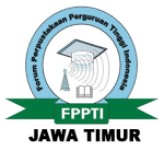Evaluation of The Library and Archives of East Java's Workshop as A Knowledge Sharing Form of Jawatimuran Local Wisdom Preservation
Downloads
Local wisdom possessed by the East Java is a form of culture that represents the identity of the Jawatimuran that does not shared by other regions, but the social dynamics and development of information technology make the knowledge of local wisdom faded and forgotten, so that the next generation remains to know, love and proud in the culture of their own country, then that knowledge must be preserved. The Library and Archives of East Java has organized several workshops. Those workshops are a form of knowledge sharing as an effort to preserve local wisdom of Jawatimuran through writing. The purpose of this study is to evaluate the workshops conducted by The Library and Archives of East Java. The methodology used in this study is a qualitative descriptive method. The results of this study show that knowledge sharing can improve the productivity of the authors and creates integration between authors, publishers and The Library and Archives of East Java in an effort to preserve local wisdom in East Java. The conclusion is that The Library and Archives of East Java should be a bridge for the writers to continue to produce writings based on the local wisdom.
Downloads
Abdulwahid, I., Kalsum, M., Teddi, Febyani. (2012). Pranata Sosial dalam Masyarakat Sunda.
Dalkir, K. (2005) Knowledge Management in Theory and Practice. Burlington: Elsevier Inc.
Raffles, T. S. (2014). The History Of Java. Yogyakarta: Narasi.
Record and Library Journal by Unair is licensed under a Creative Commons Attribution-ShareAlike 4.0 International License.
1. The journal allows the author to hold the copyright of the article without restrictions.
2. The journal allows the author(s) to retain publishing rights without restrictions
3. The legal formal aspect of journal publication accessibility refers to Creative Commons Attribution Share-Alike (CC BY-SA).
4. The Creative Commons Attribution Share-Alike (CC BY-SA) license allows re-distribution and re-use of a licensed work on the conditions that the creator is appropriately credited and that any derivative work is made available under "the same, similar or a compatible license”. Other than the conditions mentioned above, the editorial board is not responsible for copyright violation.


 57201398420
57201398420

























